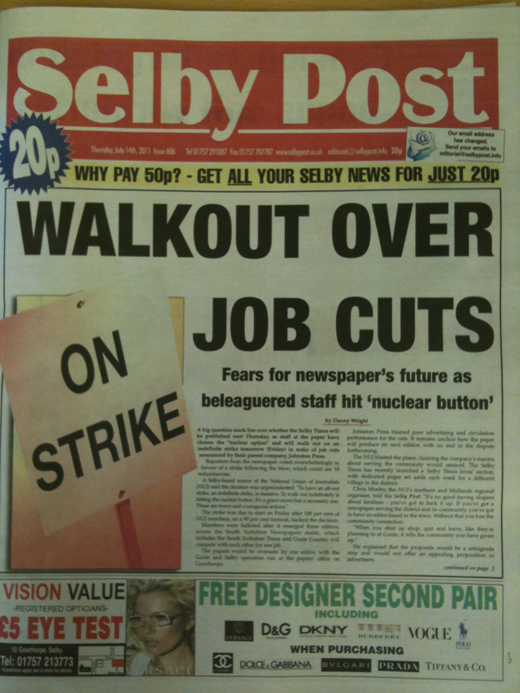Johnston Press bosses in South Yorkshire, who reportedly asked a 16-year-old teenager to cover the news desk during a strike, have asked the work experience student to leave, the National Union of Journalists has claimed.
The teenager, who has just completed his GCSEs, had come to the group’s Selby Times for work experience but, when the strike to protect jobs and quality journalism began at the Selby Times, Doncaster Free Press and South Yorkshire Times on 15 July, management extended his engagement to get the paper out, the union has said.
He was put to work writing news stories – despite having originally asked the paper to do his work experience on the sports desk, the NUJ said.
Rival title the Selby Post reported the story.
NUJ negotiator Lawrence Shaw told Journalism.co.uk he believes “embarrassed Johnston Press bosses” asked the work experience teenager to leave after the paper went to press on Wednesday.
Around 25 members of staff are striking indefinitely, leaving the editor, sports editor and, at the beginning of the week the 16-year-old on work placement, Journalism.co.uk understands.
“In more than 10 years of being a union representative I have never seen a more determined group,” Shaw said.
Asked to confirm or deny the claims both the editor of the Selby Times and Johnston Press’ head office in Edinburgh declined to comment.


